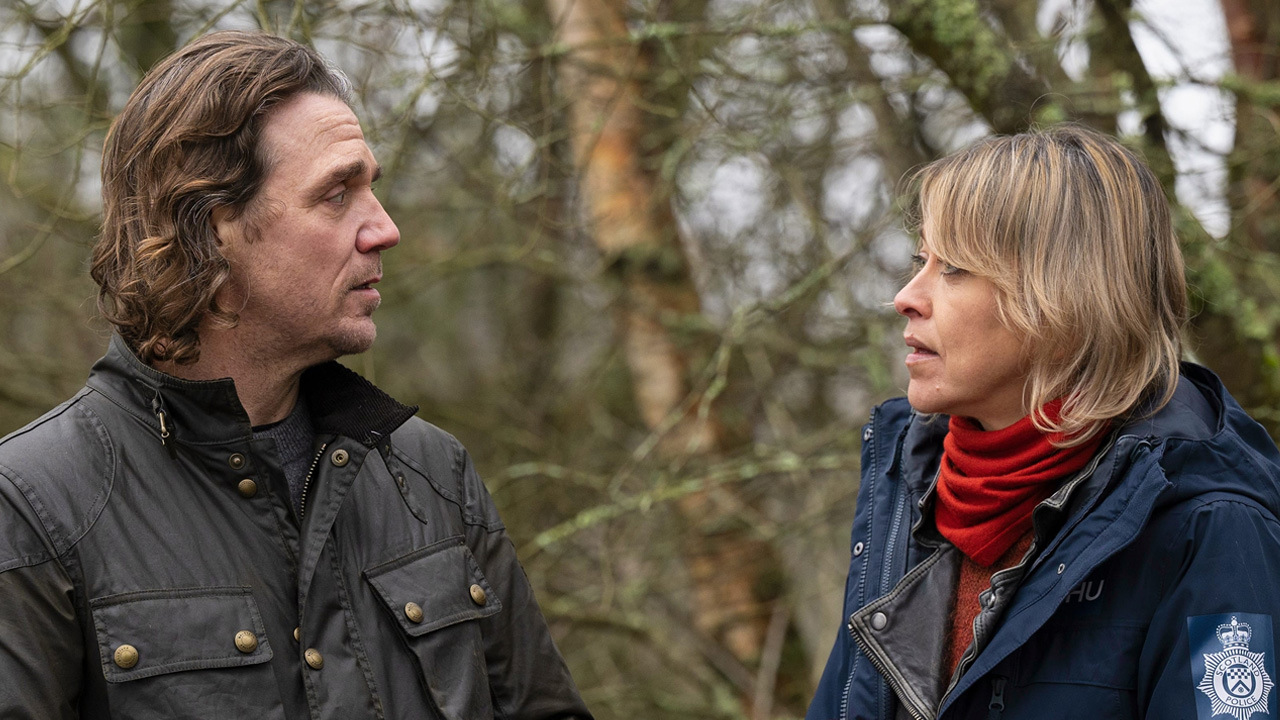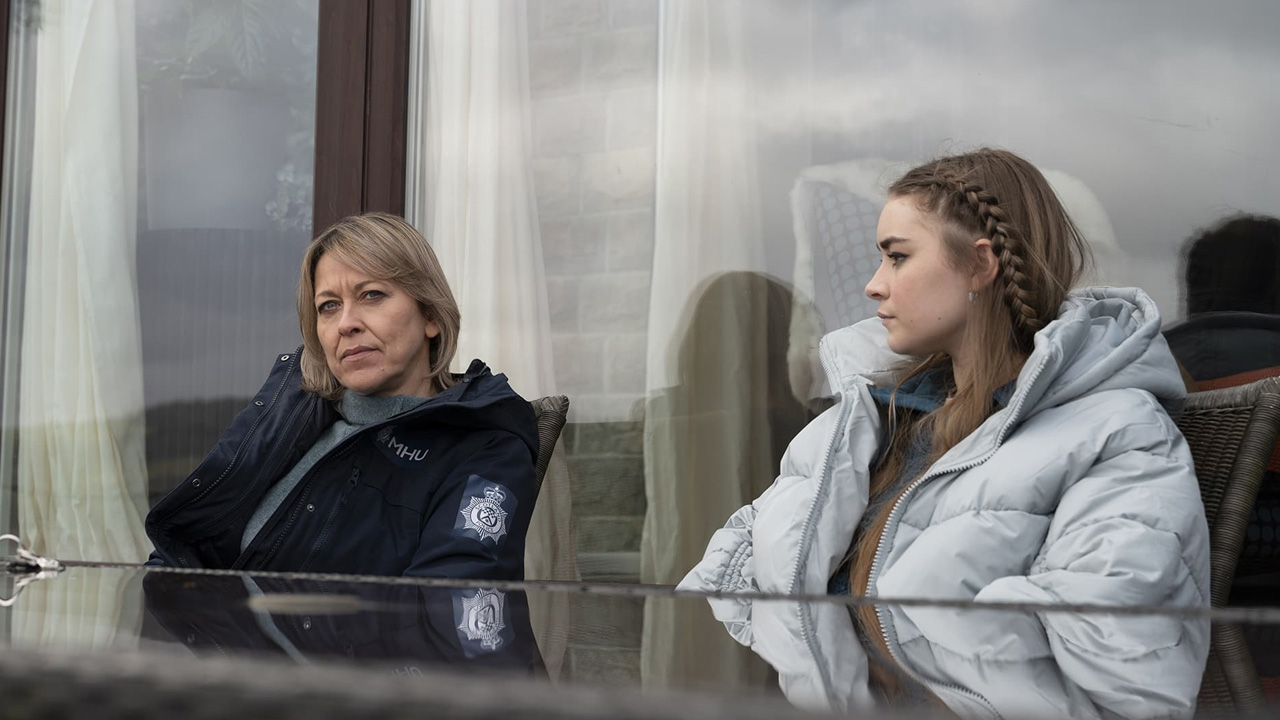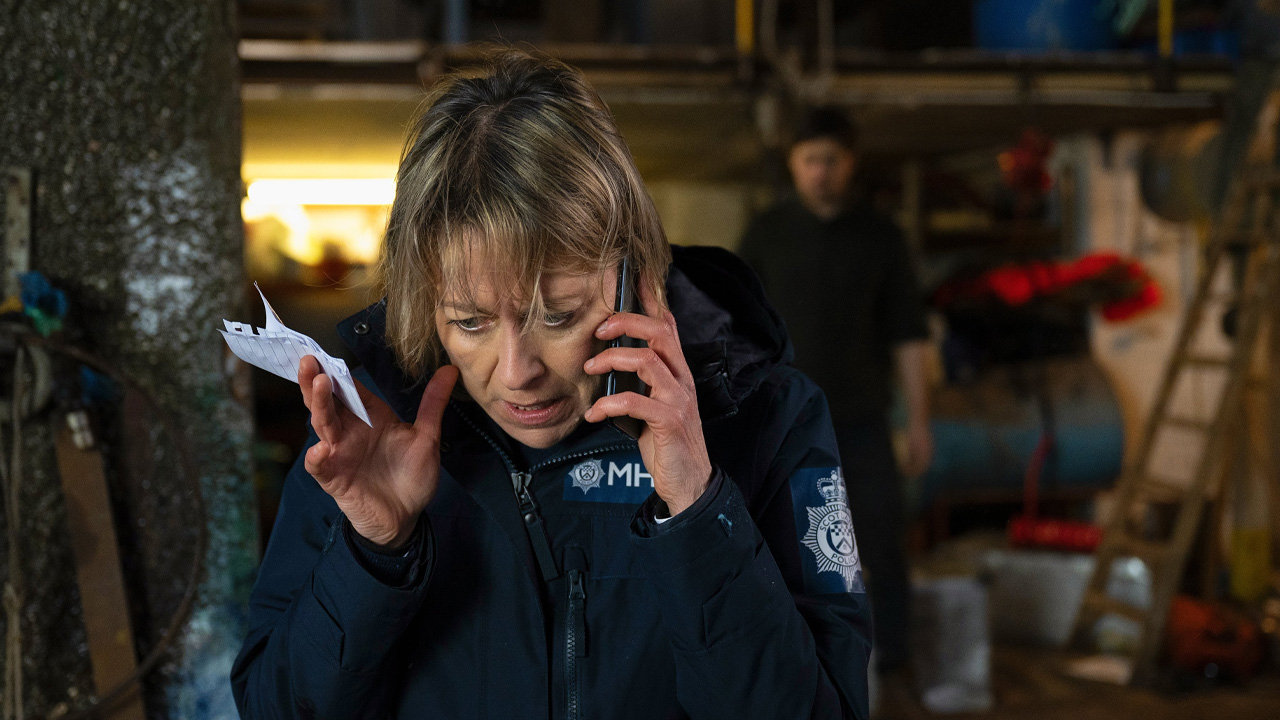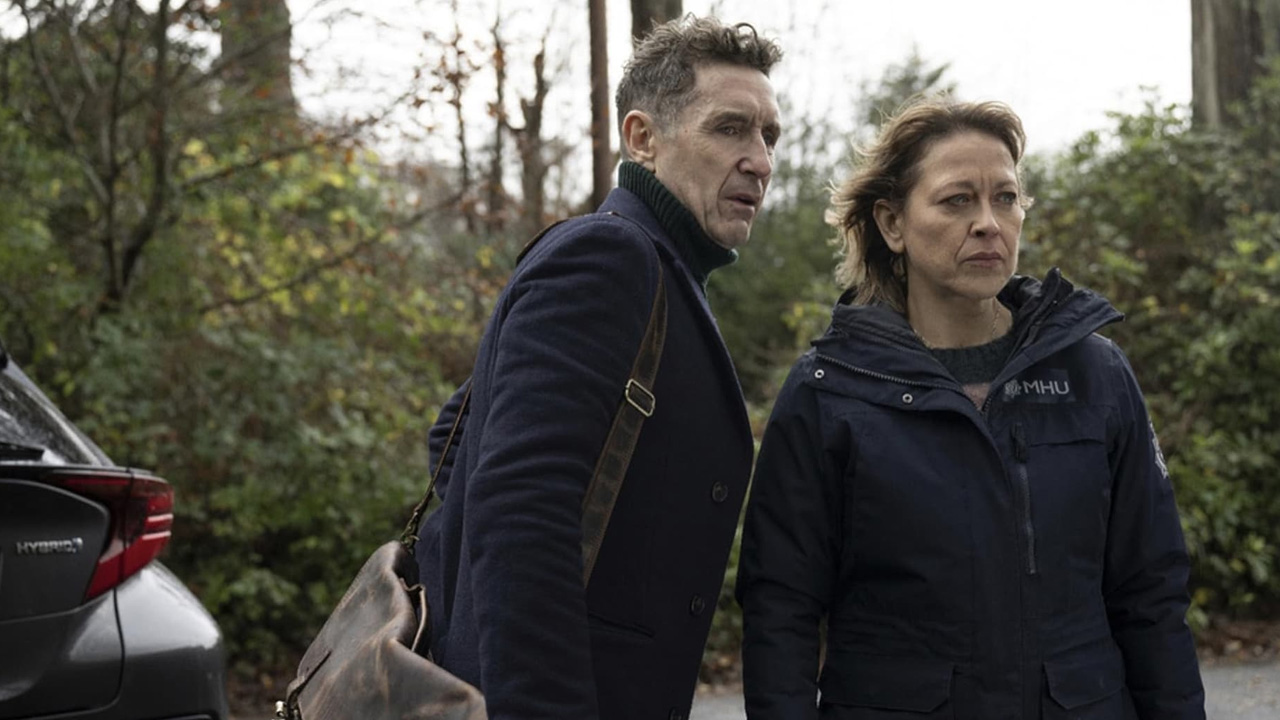Charmingly odd Annika stands apart in the police procedural genre

British screen veteran Nicola Walker plays a sharp, witty and enigmatic detective in stand-out police procedural Annika. Now in its second season, what sets this show apart in a crowded genre? As Amelia Berry writes, it’s a combination of character, literary allusions, a brilliant theme tune, and just being charmingly odd.
With a lot of police procedurals, it can be hard to tell exactly what separates a cult classic from a Tuesday afternoon time-filler. Maybe one has slightly more compelling whodunnits, a lead that’s a touch quirkier, or the acting is a hair more together. Sometimes it’s just… the tone, or the music, or some ineffable chemistry between the leads. Maybe one has David Tennant. With a genre that so often sticks tightly to the formula, the difference between brilliant and forgettable can essentially be ‘vibes’.
That’s not the case for Annika though. It’s actually pretty easy to see why this British cop drama has developed such a dedicated following after only one season. Simply put, Annika is weird.
The series follows Annika Strandhed (Nicola Walker), a Scottish detective inspector with a Norwegian background (that’s important). As season one kicks off, she’s just been appointed head of the Marine Homicide Unit (MHU).

Of course, she has to balance her work commitments with her rebellious teen daughter, her love life, and her fraught relationship with second-in-command DS Michael McAndrews (Jamie Sives).
So far, pretty standard set-up. Where the kookiness comes in is DI Annika’s constant fourth-wall-breaking monologues to the camera. Every episode is built around a suite of soliloquies—usually with Annika relating her current situation to some high-minded piece of literature.
Annika loves Ibsen, she will tell you the whole plot of ‘An Enemy of the People’ as she trudges through mud to retrieve a bloated corpse. She’ll wax lyrical about Twelfth Night in the back of a police speedboat. She’ll improvise a limerick about her daughter explaining Norse etymology to her.

It’s a device that feels more Lemony Snicket than Broadchurch, and brings a kind of wry, arch humour to the show that feels totally apart from anything else happening in the genre.
Does it make Ms Standhed a bit of a self-satisfied knob? Yes, absolutely! But watching that play out in her relationships with the other characters allows for some juicy dramatic irony. It’s one thing watching someone Moby Dick their life—it’s another when they turn to the camera and start talking about Herman Melville’s favourite whales.
Nicola Walker brings a lot of charm to the main role. As a veteran of UK procedurals (Spooks, Unforgotten, River… the list goes on), she’s played a lot of pretty grim detectives. So, it’s great to see her get to stretch her legs a little with Annika—dryly funny, a little awkward, but still unflappable in the face of death, destruction, and dismemberment.
Walker has a spent a long time with this character, playing her in the BBC Radio 4 series Annika Stranded on which the show is based. These short radio dramas are all monologue—just you, Annika, and whatever great piece of great literature she’s fixated on this week. Walker and writer Nick Walker (no relation) have really taken the time to hone Annika’s voice to an odd particularity, and it shows.

Still, setting aside the speeches to camera, quirky main character, and self-conscious literary allusions, there’s one other way to judge Annika as an instant cult sensation—the brilliant theme tune. How did they get Anton Newcombe from The Brian Jonestown Massacre and Dot Allison from One Dove to do the theme? Someone in the production team was a visionary.
[LIGHT SPOILERS FOR SEASON ONE AHEAD – ED.]
As we move into season two, the stakes are higher than ever for our detective inspector. After almost getting blown up in the boot of a car in the season one finale, Annika revealed to the audience that Michael was the father of her daughter, Morgan (Silvie Furneaux). Of course, Morgan has her own stuff going on, as does Michael for that matter.
We open episode one still in the pub at Morgan’s 16th, Michael none-the-wiser, and it isn’t long before we set up the other major dramas for this season—DC Blair Ferguson (Katie Leung) is pregnant, and DS Tyrone Clarke (Ukweli Roach) is looking to sit his inspector’s exam, which means he could be leaving the team.
Of course, we still have a murder to solve, and Annika still needs to explain the history of the Child Ballads to us—she’s feeling a lot like the woman from The Great Selkie of Sule Skerry #relatable.

With the screws tightening on the drama, there are a couple of other notable changes for season two. First is Annika’s attitude towards the audience. In season one, we were in on the joke with her, but after everything that’s happened, she’s feeling a little judged, and a wee bit defensive.
Second, is the arrival of Magnus Strandhed, Annika’s father. Hanging like a shadow over the first half of the season, he sweeps in for episode four to upend Annika’s life, adding a lot to the themes of parent-child relationships that the show has been playing with.
Speaking to The Killing Times, Nicola Walker said “What’s lovely is that Annika is about the macro and the micro. On a macro level, something appalling and epic and drama-worthy happens in that episode. But on a micro level, you’re looking at a father and a daughter’s very difficult relationship playout. That’s what’s beautiful about the series. It does operatic, and it does realistic. It blends those two so well.”
For a series trading on that kind of high-key drama, Annika is charmingly odd. It’s not a tone that will land for every viewer, but if you give yourself a chance to get to know the character, there’s a better than good chance you’ll get sucked in. And if you’re already in the fan club? Well, rest assured—season two is more death, more drama, and just about the same amount of deadpan. It’s actually a lot like this one Ibsen play, let me tell you about it…



















